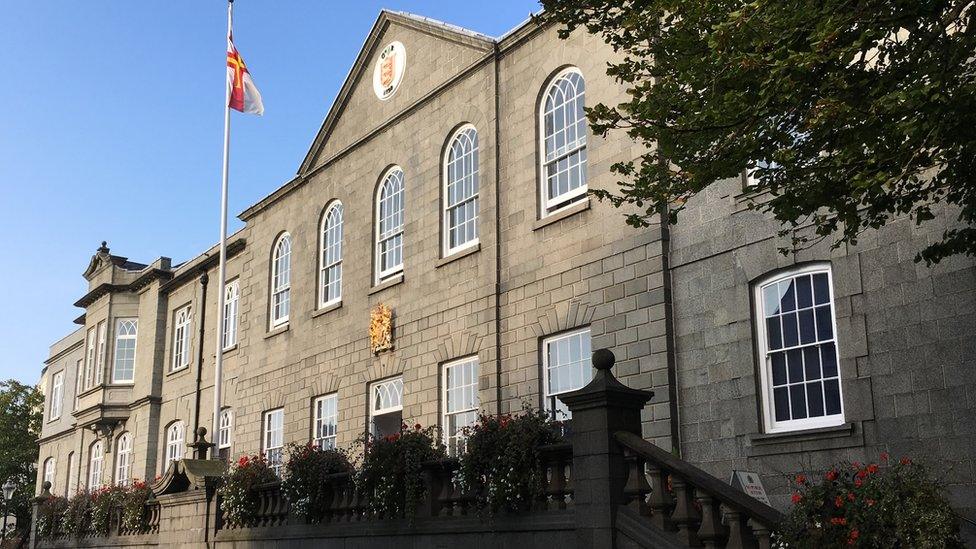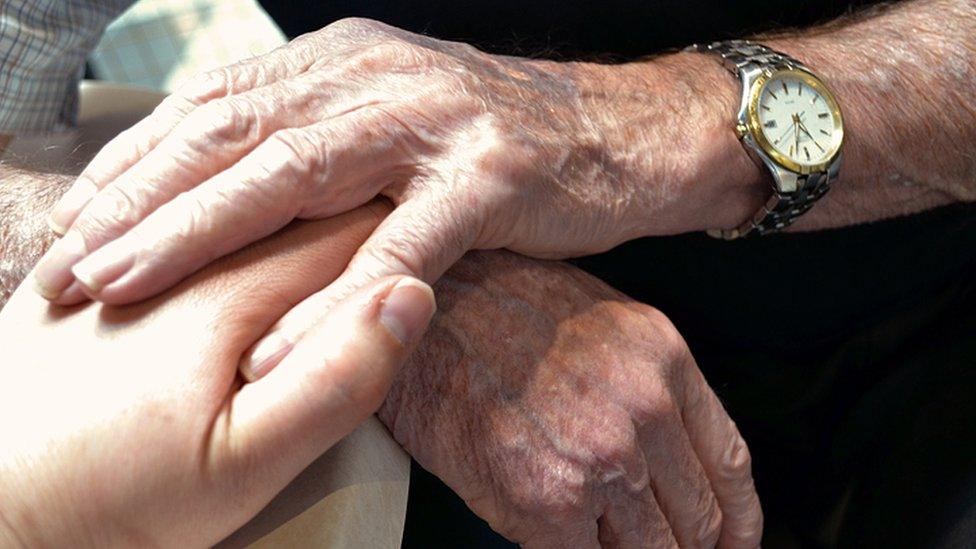Guernsey's politicians vote to reject assisted dying
- Published

Those behind the call were disappointed but not surprised when it failed
Guernsey's government has rejected proposals that may have seen assisted dying legalised in the future.
Had it been approved, the island could have become the first place in the British Isles to allow assisted dying.
After a three-day debate, the proposals were rejected.
The plans would have prompted a lengthy consultation period before a legal framework was presented back to the island's politicians.
More on Guernsey's assisted dying debate
However, politicians did agree to a review of palliative and end-of-life care due to an anticipated "substantial increase" in healthcare needs for the island's ageing population.
"Measures necessary to improve quality of life and health outcomes for all islanders towards the end of their lives" will be investigated.
Politicians who supported the introduction of assisted dying said they were "disappointed" with the result, although described it as "not entirely unexpected".
Sarah Wootton, chief executive of Dignity in Dying which campaigns for assisted dying in the UK, said despite the defeat the debate had shown there was "immense public support for change".
Reaction to the debate:
Allow X content?
This article contains content provided by X. We ask for your permission before anything is loaded, as they may be using cookies and other technologies. You may want to read X’s cookie policy, external and privacy policy, external before accepting. To view this content choose ‘accept and continue’.
Allow X content?
This article contains content provided by X. We ask for your permission before anything is loaded, as they may be using cookies and other technologies. You may want to read X’s cookie policy, external and privacy policy, external before accepting. To view this content choose ‘accept and continue’.
Allow X content?
This article contains content provided by X. We ask for your permission before anything is loaded, as they may be using cookies and other technologies. You may want to read X’s cookie policy, external and privacy policy, external before accepting. To view this content choose ‘accept and continue’.
Allow X content?
This article contains content provided by X. We ask for your permission before anything is loaded, as they may be using cookies and other technologies. You may want to read X’s cookie policy, external and privacy policy, external before accepting. To view this content choose ‘accept and continue’.
Commenting on social media, Sarah Griffith who runs the charity Bridge2 in Guernsey, said she would be becoming a member of Dignitas as a result of the vote, adding "I was hoping I would not have to make that decision but now I have to."
She added that it was a shame it had taken assisted dying proposals to prompt the States of Guernsey to improve its palliative care programme.
Anti-euthanasia campaign group Care Not Killing said it welcomed the "powerful rejection" of the proposals.
The group's campaign director Dr Peter Saunders described the plans for assisted dying as "dangerous" and said island politicians had recognised "the erosion of so called safeguards" in other places which had allowed assisted dying, including the US.
Deputy Gavin St Pier, the island's most senior politician and champion of the proposals, said: "The important thing is we've brought this topic up the agenda, it hasn't been debated (in Guernsey) for 14 years, we've now had a debate, a conclusion has been reached - we accept that result."
Heidi Soulsby, president of the Committee for Health and Social Care, said although rejecting the proposals was right, she does not know anyone who would be "pleased" with the result of the emotive debate.
During the debate she said she was sure an assisted dying regime "would eventually come to pass" in the island, but now was not the time.
Related topics
- Published14 May 2018
- Published17 April 2018
